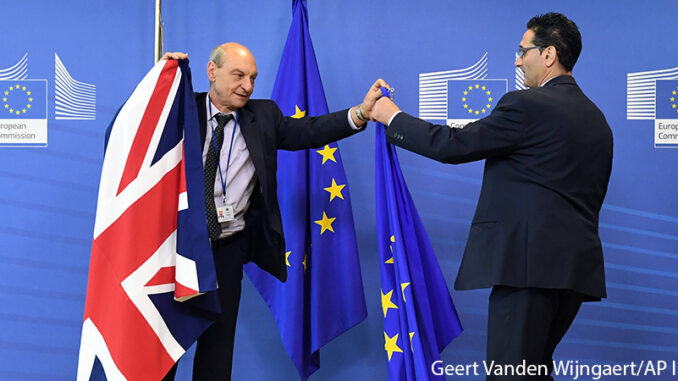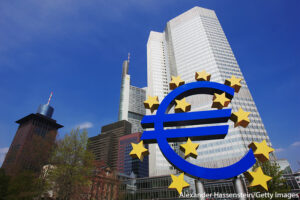
Last week, the people of the United Kingdom went to the polls and voted 52% to 48% in favor of leaving the European Union. It is being called Brexit (for British Exit). The news is causing quite a stir around the world, as leaders and experts gather to determine what comes next. This week, we break it down to give you a clearer idea of what is happening.
Some Background

The creation of the European Union came five years after the end of World War II. It began with Germany and France, who came together to ensure the two nations would not face one another in war again. In 1951, six nations—West Germany, France, Italy, Belgium, Luxembourg and the Netherlands—signed the Treaty of Paris. This effort pooled together resources (mainly coal and steel, which had been major industries during the war).
Seven years later, the same countries created the European Economic Community, with the aim of establishing economic integration among its “member states.” The United Kingdom joined in 1973 (along with the Republic of Ireland and Denmark). In 1992, the Maastricht Treaty led to the official creation of the European Union. It is made up of four key institutions. Today, there are 28 countries that are bound together by the EU.
While the UK has been an active member of the EU, there has been a growing counter movement called Euroscepticism. Those who identify with this movement believe that the Great Britain is better off without the EU. They believe that excessive bureaucracy, inefficiency and austerity measures for countries like Greece, are bad for Great Britain’s national sovereignty (independence).
The video below helps provide some additional overview of the European Union’s membership and history. (It is now potentially out-of-date, however, given last week’s United Kingdom vote.)
Modern Debate
During the 2015 general election, Prime Minister David Cameron made a promise that if elected, he would allow the British people the opportunity to vote on whether the country should leave the European Union. A special election was held on June 23. A record 46.5 million people cast their vote whether the country should remain or leave the EU.
While the economic and political motivations mentioned above were motivations for some voters to leave, the recent surge in immigration was said to be a significant motivator for many of those voters who chose the leave option. Around 500 people currently arrive in the UK each day. This is because within the EU, people are free to move from country to country, and the UK is a desirable place for many to resettle. Those in the Remain camp believe that Brexit will lead to economic disaster, not only for the UK but to international markets. Prime Minister Cameron was a vocal proponent of the Remain camp, even negotiating new terms for his country’s membership in the EU. Despite his allowance for the British people to decide their own fate, the result cause Cameron to announce that he would resign as prime minister in October.
Potential Impact
Under European Union rules, the UK has a maximum of two years to fully remove itself from the international organization. In the meantime, experts are scurrying to figure out the impact of the voters’ decision. Britain has already experienced a wide flux in the value of its currency within the last few days. Stock markets all over the world responded with a significant dip in the days following the referendum. Some believe the action will plunge the UK into a recession. On the other hand, some say that the negative predictions have been greatly exaggerated, that initial market corrections will stabilize, and that EU leadership will come together to prevent larger negative impacts.
